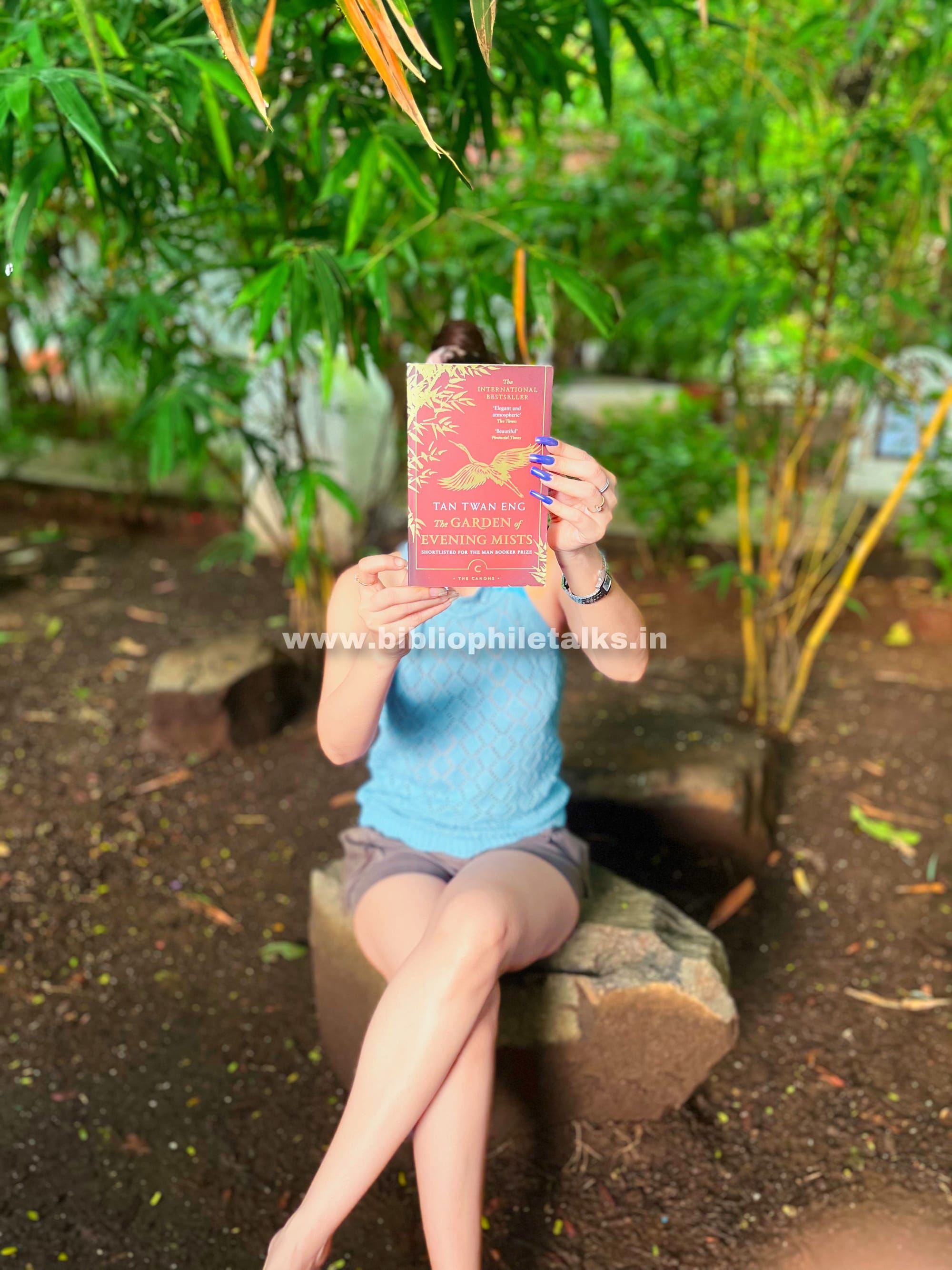THE GARDEN OF EVENING MIST

𝗧𝗵𝗲 𝗚𝗮𝗿𝗱𝗲𝗻 𝗢𝗳 𝗘𝘃𝗲𝗻𝗶𝗻𝗴 𝗠𝗶𝘀𝘁𝘀
𝗕𝘆 𝗧𝗮𝗻 𝗧𝘄𝗮𝗻 𝗘𝗻𝗴
𝗣𝘂𝗯𝗹𝗶𝘀𝗵𝗲𝗿: 𝗖𝗼𝗮𝗻𝗼𝗻𝗴𝗮𝘁𝗲 𝗕𝗼𝗼𝗸𝘀
𝗣𝗮𝗽𝗲𝗿𝗯𝗮𝗰𝗸: 𝟑𝟓𝟐
𝗣𝘂𝗯𝗹𝗶𝘀𝗵𝗲𝗱: 𝟒𝐭𝐡 𝗔𝗽𝗿𝗶𝗹 𝟐𝟎𝟏𝟗
𝗚𝗲𝗻𝗿𝗲: 𝗛𝗶𝘀𝘁𝗼𝗿𝗶𝗰𝗮𝗹 𝗙𝗶𝗰𝘁𝗶𝗼𝗻
𝗠𝗮𝗹𝗮𝘆𝘀𝗶𝗮𝗻 𝗟𝗶𝘁𝗲𝗿𝗮𝘁𝘂𝗿𝗲
𝗥𝗲𝗮𝗱𝗶𝗻𝗴 𝗬𝗲𝗮𝗿: 𝟐𝟎𝟐𝟓
Teoh Yun Ling, recently retired from her role as a judge due to illness, returns to the highlands of Malaya—a place deeply intertwined with her past. While her homecoming appears rooted in remembrance, it’s also guided by quieter, more personal motives that gradually unfold. A former prisoner in a Japanese internment camp during World War II, Yun Ling bears the emotional weight of survival. Her beloved sister, who perished in the camp, was passionate about Japanese gardens, a shared fascination that endured even in the darkest times.
Determined to honour her sister's memory, Yun Ling approaches Nakamura Aritomo, once the gardener to the Emperor of Japan and now living in seclusion in Malaya, to design a garden in her sister’s memory. He declines the request but offers to take her on as an apprentice, allowing her to learn the art of Japanese gardening herself. Thus begins a quiet yet profound journey, where both Yun Ling’s and Aritomo’s pasts gradually reveal themselves.
The language is accessible yet elegant, and the narration is fluid. It's not a novel driven by fast-paced action; instead, it's a meditative, deeply layered story that invites the reader to linger. Rich in descriptive beauty, it’s a novel to savour, one that rewards patient, attentive reading. The narrative is complex, with interwoven plotlines, a cast of memorable characters, and a significant historical backdrop, all of which demand focus but offer great reward.
Set against the backdrop of Malaya’s turbulent history—particularly the Japanese occupation and the post-war Malayan Emergency—the book examines the long shadows cast by war and trauma. Yet it also gently immerses readers in the disciplines of Japanese gardening, the elegance of traditional tattooing, and the quiet poetry of landscape. The author’s lush descriptions paint mist-covered hills, rain-washed plantations, and serene gardens that borrow from the earth and sky in perfect harmony. Every element, from the placement of a stone to the fall of leaves, seems charged with intention and meaning.
The Garden of Evening Mists left a lingering impression on me. It offered not only a compelling story but also a genuine sense of escape and reflection. While its slow, contemplative pace and intricate storytelling may not appeal to every reader, it is undoubtedly a rewarding experience for those who enjoy historical fiction, character-driven narratives, and thoughtful, immersive prose.
I’ve previously read the author’s The House of Doors, which, unfortunately, didn’t quite meet my expectations. I look forward to reading Tan Twan Eng’s debut novel, The Gift of Rain, and hope it, too, will offer the same quiet beauty and emotional resonance.
My Rating:
4/5
NOTE: In this blog, the CONTENT and PICTURES are owned by Samayra Singh, and cannot be used or distributed without permission. Strict legal action will be taken against any infringement.